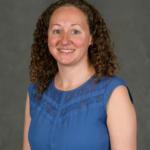(MADISON, Wis.) A team of researchers at the University of Wisconsin-Madison, Georgia Tech, and other U.S. universities is developing a new digital tool to help journalists identify and combat misinformation online, with a particular focus on food safety – an issue with substantial levels of misinformation shared online. The research team’s goal is to support news reporting of verifiably accurate information.
 The new tool, Course Correct, will offer precision guidance against misinformation with a digital dashboard that helps journalists identify trending misinformation on social media and target journalists’ corrections into the networks where false claims are circulating, enabling effective corrections in real time.
The new tool, Course Correct, will offer precision guidance against misinformation with a digital dashboard that helps journalists identify trending misinformation on social media and target journalists’ corrections into the networks where false claims are circulating, enabling effective corrections in real time.

“Food safety is a massive issue, with an estimated cost on the U.S. economy of between $10 to $15 billion per year. Notifying consumers, recalling food, paying damages, and covering medical and mortality expenses has a huge financial and human toll. And all of this is compounded by misinformation, so much of it avoidable,” said Dr. Dhavan Shah, Maier-Bascom Professor and Director of the Mass Communication Research Center at the University of Wisconsin-Madison.
Misinformation on social media is often characterized in terms of partisan politicians or ideological discussions, but the Course Correct team’s research has often focused on non-partisan and non-ideological issues where dangerous misinformation is spreading on social media, like raw milk and vaping.

“Apolitical issues, like food safety, directly affect the safety of all of us. And our research suggests that correcting misinformation is often much more effective on issues that are apolitical in nature. Our goal is for Course Correct to be a trusted communicator of verifiably true information about vital issues,” said Course Correct’s Principal Investigator, Dr. Michael Wagner, a professor in the UW-Madison School of Journalism and Mass Communication.
Journalists can use Course Correct’s rigorously gathered misinformation detection evidence to help them decide what issues to cover and to improve the flow of accurate information about the topic.

“Our research has shown that corrections on issues of food safety are particularly effective at reducing beliefs in misinformation. We think this effectiveness comes from at least two factors – first, food safety tends to be an issue that crosses party lines, and second, it tends to be an issue which people often have little background knowledge about, meaning their opinions are less set in stone,” said Dr. Leticia Bode, a Course Correct investigator and professor at Georgetown University.
The Course Correct project is funded by the National Science Foundation (NSF). Launched in 2019, the NSF’s Convergence Accelerator builds upon research and discovery to accelerate use-inspired convergence research into practical application. The Convergence Accelerator is making timely investments to solve high-risk societal challenges.
1 thought on “Course Correct Working to Help the Public Understand Accurate Information about Food Safety”
Comments are closed.